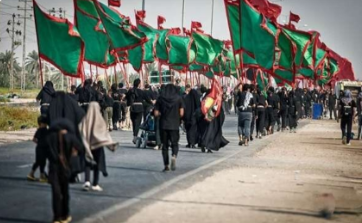Beneath the shade of palm trees, in the darkness of night, and along the banks of the Euphrates River, our scholars and loyal pilgrims walked a path unlike any other… a path of faith and patience, known as “The Scholars’ Path.”
It earned this name because it was the secret route taken by scholars (teachers of the Hawza) and a number of devoted pilgrims during a time when the former regime banned the pilgrimage and hunted down those who dared to make it.
The path wound through dense palm groves from Najaf to Karbala. Our scholars, such as Sayyid Muhammad Baqir al-Hakim and Sayyid Muhammad Baqir al-Sadr (may their resting places be sanctified), and others, would travel it at night, away from prying eyes, despite the great danger. Whoever set foot on it never knew if they would return safely… or be martyred along the way.
The servants of Imam Hussein (peace be upon him), whose homes lay near the path, would unite to serve pilgrims in secrecy—lighting the way with torches, offering food and lodging—acts of courage and devotion carried out in the shadows.
Today, we walk that very same path, but in complete freedom, in front of millions, without fear or prohibition. This is a blessing from God, and one we must be grateful for.
Yet we must remain vigilant… for the war on the pilgrimage has not ended. In the past, it was fought with weapons; today, it is fought with ideas. The only way to counter this war is with awareness, sound belief, and returning to the guidance of people of knowledge.
“The Scholars’ Path” has now become part of the heritage of the pilgrimage—something pilgrims take pride in, a living memory of the sacrifices of the scholars and servants of Hussein (peace be upon him) who walked this way before us.
“Among them is he who has fulfilled his vow, and among them is he who awaits; and they did not alter in the least.”

